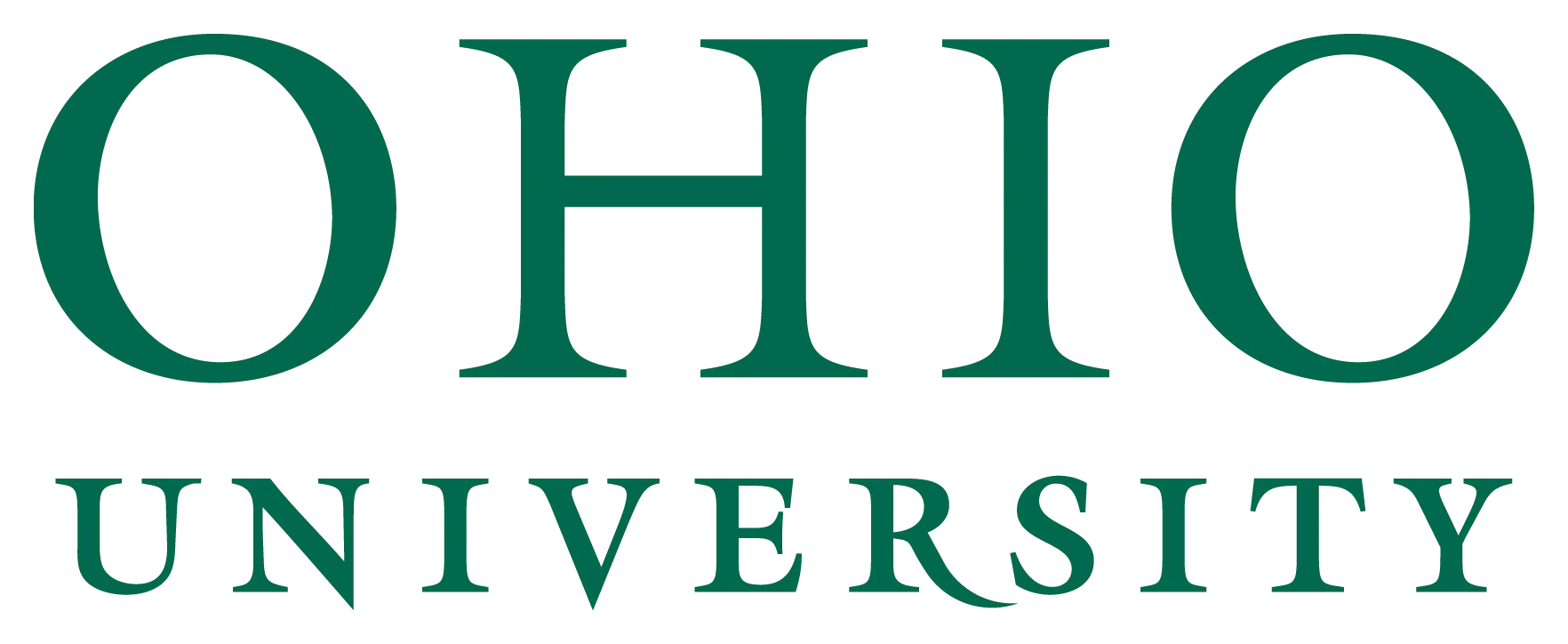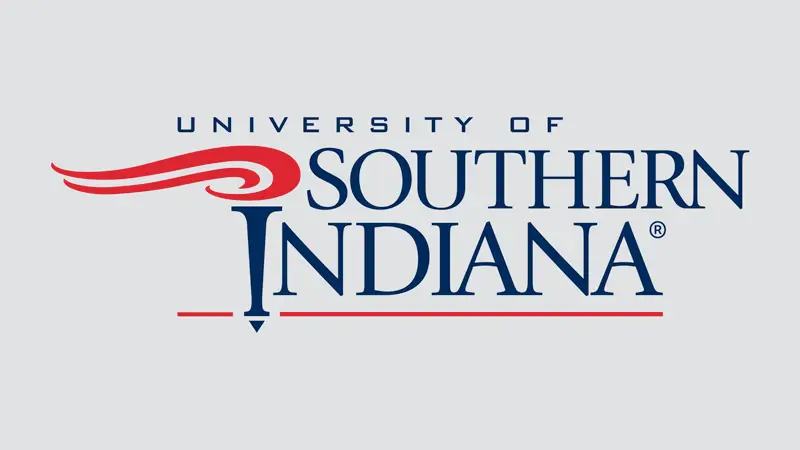Research shows firms with strong financial leadership are better positioned for sustainable growth and risk management. An MBA in Accounting prepares professionals with strategic, analytical, and ethical decision-making skills critical for senior roles. Flexible online programs combine core business knowledge with advanced accounting practices to support career advancement and growth.
Top-tier institutions like the University of North Carolina (Kenan-Flagler), Ohio State University (Fisher College of Business), and the University of Texas at Dallas are highly regarded for their MBA in Accounting programs. These universities are respected for blending rigorous accounting expertise with broad business acumen, preparing graduates for impactful careers as CFOs, controllers, and financial strategists.
Selecting the ideal MBA in Accounting program necessitates careful evaluation of the curriculum’s depth, faculty’s industry experience, program flexibility (especially for online formats), and career services support. Verifying accreditation and assessing the potential return on investment are also vital steps in making an informed decision.

Highly Ranked MBA in Accounting Programs
| Logo | Name of the University | Description |
|---|---|---|
| University of North Texas at Dallas | Offers coursework aligning with CPA exam requirements, providing a thorough understanding of financial reporting, analysis, and strategic decision-making in diverse accounting areas. | |
| University of Texas Permian Basin | Known for providing advanced knowledge in audit, taxation, and financial management for CPA readiness. | |
 | Ohio University | Offers a deeper understanding of complex financial challenges and advanced accounting knowledge, preparing professionals for managerial and C-suite leadership roles. |
 | The University of Scranton Online | Delivers advanced accounting knowledge, strategic problem-solving skills, and ethical leadership capabilities. |
 | University of West Alabama Online | Offers affordable, CPA-focused coursework, flexible pacing, and career-ready skills in financial management, auditing, and strategic decision-making |
| Campbellsville University Online | Provides CPA exam preparation, fraud prevention training, and financial reporting expertise through flexible online courses taught by experienced faculty with real-world accounting insights. | |
 | Millennia Atlantic University | Delivers advanced accounting expertise through a flexible online format, emphasizing leadership, auditing, taxation, and real-world financial analysis. |
| The University of Texas Rio Grande Valley | Offers in-depth financial analysis, strategic planning, and reporting expertise through an accelerated online format with industry-focused coursework and real-world applications. | |
 | University of South Indiana | Delivers strategic financial insight, auditing expertise, and regulatory knowledge through an AACSB-accredited online format focused on real-world application and comprehensive accounting principles. |
 | University of West Florida | It delivers advanced managerial accounting, financial analysis, and strategic problem-solving skills, enhancing understanding of complex business environments. |
Program Aspects & Considerations
- Curriculum: Prioritize programs that cover advanced accounting principles, financial strategy, and data analysis to support informed decisions.
- Specializations: Explore focus areas such as taxation, auditing, or forensic accounting to align with specific career interests.
- Tuition Cost: Anticipate varied program costs based on institution, credit needs, and residency status.
- Admission Requirements: Verify academic records and professional experience, and obtain recommendations; inquire about GMAT/GRE waiver eligibility.
- Accreditation: Opt for regionally accredited programs, preferably those with specialized AACSB accreditation for business excellence.
- Career Paths: Prepare for advanced roles in financial management, auditing, tax, or corporate accounting leadership.
- Faculty & Resources: Seek experienced faculty, practical projects, and robust career support services.
- Program Structure: Choose between full-time and part-time pace; most online MBAs are 30-36 credits, completed in 1.5-3 years.
Top 10 Accredited MBA in Accounting Online Programs (2025 Rankings)
Accredited MBA in Accounting Online programs represent a pinnacle for finance professionals. These top-tier degrees integrate advanced accounting principles with strategic business acumen, preparing graduates for significant roles in dynamic financial landscapes. They cultivate expertise in data analysis, risk assessment, and ethical financial management, essential for navigating complex regulations and driving organizational success. Graduates emerge equipped to influence fiscal policy and lead accounting functions effectively. Here are 10 Accredited MBA in Accounting Online programs:
To Link to this page, please copy and paste this code into your website
<a href="https://www.onlinemasterscolleges.com/mba-in-accounting-online/">MBA in Accounting Online</a>
Code copied successfully!
University of North Texas at Dallas- MBA Accounting

The University of North Texas at Dallas offers an MBA with an Accounting concentration, tailored for graduates seeking eligibility for the CPA exam. This program offers a comprehensive understanding of organizational finances, encompassing financial reporting, strategic investment, and risk management. It uniquely blends business acumen with advanced accounting practices. Recognized for its affordability in the DFW area, the program boasts a faculty that equips students with essential tools for career advancement and complex problem-solving. Graduates are prepared for diverse accounting roles, contributing to fiscal efficiency and profit maximization, aligning with the growing demand for skilled professionals.
Highlights:
- CPA Exam Pathway: Provides the necessary coursework for accounting graduates aiming to qualify for the CPA exam.
- Affordable & Award-Winning Faculty: Recognized for its affordability in the DFW area, with highly experienced faculty.
- Broad Financial Perspective: Offers deep understanding of financial reporting, analysis, strategic investment, and risk identification.
Quick Facts:
| Program Length | Credits | Cost Per Credit | Accreditation | GRE Required |
| Typically 30 semester hours. Can be completed in as little as 3 semesters for the MBA, but may require additional background courses. The general UNT Dallas MBA is 18-21 months full-time or longer for part-time/online. | 30 credits (for the MBA program, though additional prerequisites or CPA-specific hours may be required) | For the general UNT Dallas MBA, estimated resident tuition per credit hour is approximately $5,512 for six credit hours (variable tuition plan), varying by total hours and residency. Specific costs should be verified. | Southern Association of Colleges and Schools Commission on Colleges (SACSCOC) – regional accreditation for UNT Dallas. The AACSB also accredits the School of Business. | No (GMAT/GRE waivers available based on GPA or prior master’s/doctoral degrees from regionally accredited institutions). |
Why It Made Our List: This program earned its spot for its affordability among DFW MBAs and its specific focus on providing CPA exam eligibility coursework, equipping graduates for licensure and career growth.
University of Texas Permian Basin- MBA in Accounting
Ohio University- MBA Accounting Concentration
The University of Scranton Online-MBA Accounting Specialization
University of West Alabama Online-MBA Accounting
Campbellsville University Online- MBA Accounting
Millennia Atlantic University- MBA Accounting Concentration
The University of Texas Rio Grande Valley-MBA Accounting Specialization
University of South Indiana- MBA Accounting Concentration
University of West Florida- MBA in Accounting
Source – Integrated Post Secondary Education Data System & University Data
*Tuition rates are for in-state and per year. Program-specific rates may apply.
**NA – data not available
Our Ranking Methodology: How We Chose the Best MBA in Accounting Programs
Selecting the ideal MBA in Accounting Online program for aspiring financial leaders requires a thorough evaluative process. Our expert team meticulously examined various critical dimensions using rigorous methodology to identify top-tier offerings. This thorough approach ensures that each featured program delivers exceptional academic content, robust skill development, and strong career preparation, ultimately empowering graduates to excel in today’s complex financial landscape by mastering strategic financial management and analytical acumen.
Why Choose an MBA in Accounting?
Choosing an MBA with an Accounting concentration provides a significant strategic advantage in today’s dynamic business environment. This degree builds upon foundational accounting, cultivating advanced financial leadership skills essential for informed decision-making and effective risk management. It equips professionals to analyze complex financial data, drive organizational growth, and maximize profitability. The program offers immense versatility, opening pathways to elevated roles across corporate finance, auditing, taxation, and advisory services. By blending deep financial acumen with broader management capabilities, an MBA in Accounting positions graduates for substantial career advancement and increased earning potential, fostering impactful leadership.
Benefits of Online Learning
- Flexibility and Convenience: Study anywhere, anytime, allowing you to balance education with work, family, or other commitments.
- Reduced Costs: Save money on commuting, accommodation, and sometimes even tuition fees or textbook expenses.
- Self-Paced Learning: Control your learning speed, revisit materials as needed, and complete assignments on a schedule that suits you best.
- Wider Course Variety: Access programs and specialized courses from institutions globally, not limited by geographical location.
- Enhanced Self-Discipline: Develop strong time management, organization, and self-motivation skills crucial for academic and professional success.
- Customized Learning Environment: Create your ideal study space, free from traditional classroom distractions, optimizing your learning style.
- Career Advancement while Working: Continue your professional career without interruption, gaining new credentials to boost career opportunities.
Growing Demand for MBA Accounting Professionals
- High Demand: The U.S. Bureau of Labor Statistics projects a 6% growth in employment for accountants and auditors from 2023 to 2033, resulting in over 91,000 new jobs. For financial managers, a role often pursued by MBA accounting graduates, the outlook is even stronger, with a projected 17% growth over the same decade, resulting in the addition of over 138,000 positions. This signifies a consistent need for advanced financial expertise across all sectors.
- Versatile Skills: An MBA in Accounting equips professionals with a highly versatile skillset, extending far beyond traditional bookkeeping. Graduates possess expertise in strategic financial analysis, risk management, data-driven decision-making, and navigating complex regulatory environments. These competencies are highly valued across diverse industries, including public accounting and financial services, technology, manufacturing, and non-profit organizations, enabling individuals to transition into various leadership and advisory roles.
Industries Hiring Accountants
- Public Accounting Firms: Offer diverse services like auditing, tax preparation, and consulting for various clients, including the “Big Four.”
- Financial Services: Banks, investment firms, and insurance companies consistently seek accountants for roles involving financial analysis, risk management, and compliance.
- Government Sector: Local, state, and federal agencies employ accountants for budgeting, auditing, financial reporting, and tax examination purposes.
- Manufacturing & Retail: These industries need accountants for cost control, inventory management, supply chain analysis, and general financial oversight.
- Healthcare & Pharmaceuticals: Complex regulations drive demand for accountants to manage revenue cycles, financial reporting, and compliance within healthcare systems.
- Technology & IT: The rapid growth of tech companies creates a need for financial analysts, revenue accountants, and internal auditors to manage the vast financial operations.
- Non-Profit Organizations: Accountants play a vital role in managing grants, ensuring donor transparency, budgeting, and maintaining the financial health of charitable missions.
MBA in Accounting Curriculum Overview
An MBA in Accounting builds a strong foundation in advanced business and financial principles while developing analytical and strategic thinking skills. Students gain an in-depth understanding of ethical practices, leadership approaches, and decision-making frameworks that support complex financial environments. The program emphasizes practical applications and real-world scenarios, preparing graduates to navigate regulatory requirements, manage risk, and drive organizational success. Flexible learning formats and industry-aligned content make this degree valuable across sectors.
Core Courses and Electives
Core Courses
- Accounting Analysis: This course provides a fundamental understanding of financial and managerial accounting concepts. It emphasizes how this essential information is utilized for strategic planning, performance assessment, and effective control within various business entities. The focus is keenly on equipping future leaders with the analytical skills to make sound, data-driven decisions that impact an organization’s success.
- Financial Management: This course introduces fundamental concepts in financial management. It covers capital budgeting, examining how firms evaluate major investment projects. Students learn financing strategies and apply discounted cash flow analysis for valuing bonds, stocks, and corporate assets. The emphasis is on equipping individuals with the essential tools to make informed financial decisions, which are crucial for business growth and stability.
- Principles of Statistics: This course introduces statistical principles and their practical application to challenges in business and economics. Topics include probability theory, descriptive statistics, sampling methods, estimation, hypothesis testing, and basic linear regression, providing a foundation for informed decision-making.
- Strategic Management: This course integrates knowledge from various business disciplines to develop holistic organizational viewpoints. It emphasizes strategic thinking for complex problem-solving, focusing on how different functions align to achieve overarching goals. Through case evaluations and discussions, students learn to formulate and implement effective strategies.
Popular Electives
- Topics in Financial Accounting: This course explores advanced and contemporary issues in financial accounting. It delves into complex reporting standards, regulatory changes, and their impact on financial statements. The focus is on critical analysis of current topics relevant to a dynamic financial landscape.
- Topics in Federal Income Tax: This course explores federal income tax laws, rules, and regulations applicable to various entities. It covers partnerships, corporations, estates, and trusts, preparing students to navigate complex tax issues and understand their impact on business and financial decisions.
- Topics in Auditing: This course explores advanced concepts and current challenges in auditing theory and practice. It covers specialized audit areas, risk assessment, and emerging trends impacting the assurance profession in a dynamic business environment.
- Professional Ethics: This course explores the ethical principles and dilemmas faced by accounting professionals. It fosters critical thinking about moral reasoning, professional conduct, and accountability in financial decision-making, emphasizing the importance of integrity and trust.
- Information Systems Management: This course focuses on managing and leveraging information systems within organizations to drive effective business outcomes. It covers system design, implementation, and control, emphasizing how technology supports business processes, decision-making, and financial reporting.
- Fraud Examination and Forensic Accounting: This course provides an in-depth study of financial fraud. Students learn techniques for preventing, detecting, and investigating fraudulent activities, applying forensic accounting principles to uncover and document financial crimes.
Specializations
Specializations within an MBA enable students to tailor their studies to specific career goals. By focusing on a particular area, like Accounting, students gain concentrated expertise beyond general business principles. This customization equips them with highly specialized skills, making them more competitive for targeted roles and enhancing their professional value within specific industries, ensuring alignment with their future aspirations.
Capstone Projects and Hands-On Learning
Here are the key features of capstone projects and hands-on learning in an MBA in Accounting:
- Real-World Problem Solving: Students engage with authentic business challenges, often involving financial data analysis, forensic accounting cases, or strategic financial planning for organizations.
- Integrated Skill Application: These projects serve as a culmination, requiring students to synthesize accounting theory, ethical considerations, quantitative methods, and broader business acumen gained throughout the program.
- Professional-Grade Deliverables: Outcomes typically involve comprehensive reports, detailed financial models, or actionable recommendations, mirroring the high standards of executive-level communication.
- Faculty-Guided Research: Students work closely with experienced faculty advisors to define project scope, conduct rigorous analysis, and develop solutions relevant to current industry practices.
- Simulations and Case Studies: Beyond capstones, hands-on learning involves in-depth case evaluations, financial simulations, and practical exercises using industry-standard software to build tangible skills.
MBA in Accounting Admission Requirements
General requirements typically include:
Admission requirements for an MBA in Accounting typically include:
- Bachelor’s Degree: A four-year undergraduate degree from an accredited institution. While often preferred, it doesn’t always need to be in accounting or business.
- Academic Performance: A competitive undergraduate GPA (often 3.0 or higher) is generally expected.
- Standardized Test Scores: GMAT or GRE scores are frequently required, though many programs offer waivers based on strong GPA, significant work experience, or a prior master’s degree.
- Professional Work Experience: While not always mandatory, 2-5 years of relevant post-undergraduate work experience is often preferred or highly recommended, especially for full-time programs.
- Letters of Recommendation: Typically, one to three letters from professional or academic contacts who can attest to your abilities and potential.
- Essays/Personal Statement: A written statement outlining your career goals, reasons for pursuing an MBA in Accounting, and how the program aligns with your aspirations.
- Resume/CV: A detailed overview of your educational background, work history, accomplishments, and relevant skills.
- Transcripts: Official academic transcripts from all previously attended colleges and universities.
- Application Fee: A non-refundable fee required by most universities to process your application.
- Interview: Some programs may require an interview as part of the selection process after an initial review of your application.
- English Language Proficiency: For international applicants whose native language is not English, scores from tests like TOEFL, IELTS, or Duolingo may be required.
MBA in Accounting No GRE Programs
The GRE (Graduate Record Examination) is a standardized test that assesses verbal reasoning, quantitative reasoning, and analytical writing, traditionally required for admission to graduate school. However, many colleges now waive GRE requirements, recognizing factors like strong undergraduate GPAs, relevant professional experience, or advanced degrees as sufficient indicators of academic readiness. This trend promotes holistic reviews and broadens accessibility.
Cost of an MBA in Accounting Program
- Average Range: Online MBA programs typically range from $20,000 to $80,000 for total tuition. Top-tier, full-time on-campus programs can reach $100,000 to over $200,000, including living expenses.
- Factors Affecting Cost: Costs depend on institution type (public vs. private), residency status (in-state vs. out-of-state), and program format (online, part-time, full-time). Additional expenses include living costs, books, and technology fees.
Financial Aid and Scholarships for MBA in Accounting Programs
MBA programs, including those in Accounting, often come with substantial costs, contributing to rising student debt burdens. To alleviate this, various forms of financial assistance are available. These include institutional grants and awards, competitive external opportunities based on merit or need, and employer tuition reimbursement programs. Such aid is crucial for making advanced business education accessible, reducing post-graduation financial strain, and allowing professionals to focus on skill development.
Scholarships and Grants
| Scholarship | Northwestern Kellogg University- Scholarships |
| Description | Northwestern Kellogg offers various MBA scholarships, many of which are automatically awarded to admitted students based on merit or financial need. While not exclusively for accounting, notable options include the Charles J. Schaniel Scholarship, which is awarded to outstanding students with an interest in or background in accounting. Other scholarships, like Finance Fellows, may require additional essays, allowing students to highlight specific career aspirations within finance or related fields. |
| Award/Amount | Varies |
| Application Deadline | Varies |
| Scholarship | AICPA Foundation Scholarship for Future CPAs |
| Description | The AICPA Foundation Scholarship for Future CPAs supports aspiring CPAs pursuing undergraduate or graduate accounting degrees. This non-renewable award provides financial aid directly to university financial aid offices for tuition and related expenses. Applicants must have an AICPA student affiliate membership, demonstrate financial need, maintain a GPA of 3.0, and plan to pursue CPA licensure. |
| Award/Amount | $5000- $10,000 |
| Application Deadline | March Annually |
| Scholarship | Ernst & Young (EY) Scholarship |
| Description | The Ernst & Young (EY) Scholarship supports full-time university students pursuing degrees in fields such as Accounting or Finance. It offers financial assistance and career experience, including an eight-week summer internship at an EY office. Recipients agree to pursue three years of full-time employment with EY after graduation, maintaining a GPA of 3.3 or higher and obtaining relevant professional licensure. |
| Award/Amount | Varies |
| Application Deadline | Varies |
Tuition Assistance and Employer Sponsorships
Many MBA Accounting students receive valuable tuition assistance or employer sponsorships, significantly reducing their financial burden. Companies often offer tuition reimbursement or direct payments. This support often comes with an agreement to remain employed for a specified period after graduation, benefiting both the student and the organization.
Federal Student Loans and FAFSA
- Federal Student Loans: These are government-funded loans designed to help students cover the costs of higher education. They often offer lower fixed interest rates, flexible repayment plans, and borrower protections compared to private loans.
- FAFSA: The Free Application for Federal Student Aid (FAFSA) is the primary form used to apply for federal student aid, including grants, work-study programs, and federal loans. It determines financial need for college.
MBA in Accounting Careers and Salaries
An MBA in Accounting significantly enhances career prospects and earning potential. Graduates often achieve accelerated professional progression due to their dual expertise in strategic business management and financial acumen. This advanced degree positions individuals for influential roles requiring sharp analytical abilities and leadership in navigating complex financial landscapes. Salaries typically see a substantial boost, reflecting the high value employers place on these comprehensive skills.
Some of the domains where a graduate of an MBA in Accounting can find employment include:
| Job Title | Average Annual Salary | Key Responsibilities |
|---|---|---|
| Personal Financial Advisors | $102,140 per year | Provide tailored financial advice; develop investment strategies; manage client portfolios; recommend insurance, tax, and retirement plans; monitor markets; cultivate client relationships. |
| Financial Examiners | $90,400 | Monitor financial institutions for compliance with laws; review balance sheets and loan documentation; assess risk levels; prepare reports on institutional safety and soundness. |
| Tax Examiners and Collectors, and Revenue Agents | $59,740 | Determine owed taxes; collect payments from individuals and businesses; review tax returns; conduct audits; identify discrepancies; resolve overdue tax payments. |
| Loan Officers | $74,180 | Evaluate, authorize, or recommend approval of loan applications for individuals and businesses; assess creditworthiness; advise clients on loan options; manage documentation and compliance. |
| Auditor | $66,286 | Examine financial records and statements to ensure accuracy and compliance with laws and standards; assess financial controls; identify discrepancies; prepare audit reports; advise on risk. |
| Senior Financial Analyst | $89,616 | Conduct in-depth financial analysis, including forecasting, budgeting, and variance analysis; develop financial models; prepare projections; and provide strategic recommendations to management. |
Accreditation for MBA in Accounting Programs
Accreditation ensures that an MBA in Accounting program meets rigorous quality standards, assessed by independent bodies like AACSB International. This signifies a high-caliber education, respected globally by employers and other universities. For students, it assures quality faculty, relevant curriculum, and improved transferability of credits, directly impacting career prospects and professional recognition
How to Choose the Best MBA in Accounting Program for You
Selecting the right program involves careful consideration of your personal and professional goals.
- Define Your Career Objectives: Clearly articulate the specific accounting or financial leadership roles you aspire to. This clarity will significantly guide your program selection.
- Examine Program Offerings: Scrutinize the specialization’s curriculum to ensure it provides the advanced skills and knowledge directly relevant to your career aspirations in accounting.
- Evaluate Program Flexibility: Consider the format (online, in-person, hybrid) and pacing options to determine if they align seamlessly with your current work schedule and personal commitments.
- Assess Return on Investment: Compare the total cost, including tuition and potential financial aid, against the expected career advancement and salary growth post-graduation.
- Research Instructor Credentials: Investigate the faculty’s academic backgrounds, real-world industry experience, and their contributions to the field of accounting and finance.
- Gather Student and Alumni Perspectives: Seek insights from current students and graduates to understand the program’s culture, support systems, and actual career outcomes.
- Verify Admission Prerequisites: Confirm you meet all application requirements, including academic background, test scores (if applicable), and professional experience.
- Check Program Recognition: Ensure the university and the specific MBA accounting program hold reputable recognition, which is crucial for degree validity and professional acceptance.
Frequently Asked Questions About MBA in Accounting Online Programs
How long does an MBA in Accounting online take to complete?
An MBA in Accounting Online typically takes 1 to 2 years for full-time students. Part-time options usually extend this to 2 to 3 years, or even up to 5 years, offering flexibility for working professionals. Accelerated programs can condense completion to as little as 10 to 18 months.





